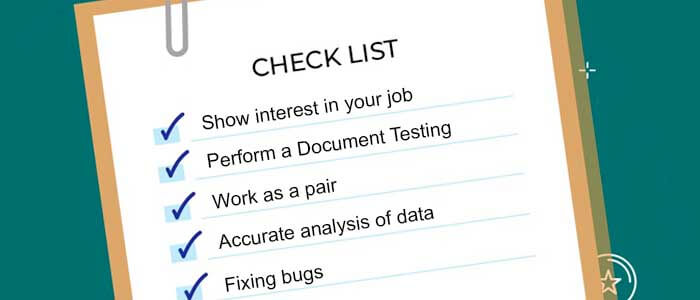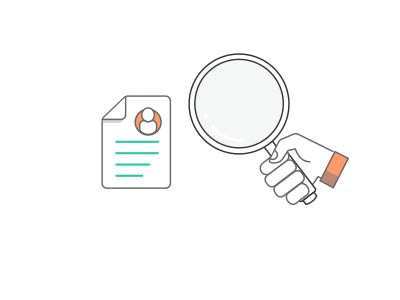Software testing refers to a software testing engineer evaluating a particular software item, looking for defects, and resolving them. The software tester should do this at the development stage, but we called it a validation and verification process. The software tester assesses the quality of the software, checking whether the expected output matches the entered input. He should be eager to learn, be innovative and accountable to his tasks, and have excellent programming and communication skills.

Speaking of accountability, here are the seven important tasks a tester working in a manual testing services company should not forget to perform. Below is the list of tasks:
1. Show interest in your job

The tester should be alert and ask relevant questions to ensure good performance. Asking questions will help clear your doubts and give you an overall picture of what you need to do. As per your problem, you can ask questions regarding requirements, software changes, requirement implementation, bug-fixing, and the relation of the product to development and business.
2. Perform a Document Testing
For a software tester, day-to-day dealing with software installation and performance can be a daily experience. However, the same might be a heinous task for a first-time user or a layman. They might turn to the user manual for help, but what if it doesn’t help them at all? Customer dissatisfaction can play a vital role in adversely affecting your future sales. Therefore, it is a smart task to religiously test the user and installation guides so that even a first-time user can understand instructions at a go. Even if he has a great product, a not-so-helpful manual won’t satisfy customers.

3. Work as a pair:

Similar to working with a laboratory partner, it can be beneficial for the products to work with a fellow software tester. Even if the concerned tester is a pro at his job with years of experience, working with a similar-minded tester will bring forward fresh ideas and sometimes ingenious insights regarding how to work with different scenarios and the tried-and-tested techniques of best software testing services.
4. Accurate analysis of data
Even after receiving the correct results for the product, the tester still needs to analyze them. He needs to understand the data, analyze them according to the expected outcome of software items and solve issues in the test environment, test data, and bugs that prevent success. The tester also needs good reporting and communication skills, which would be needed in his status report. He would be expected to give a brief but analytic description of the actions taken, the results, and how to plan to handle the situation.
5. Fixing bugs
A software tester should be able to prioritize his tasks accordingly and decide upon whether a test should be automated or be tested manually. His job does not end after reporting a bug but continues even after the developer has fixed them. An important task for the software tester is to know the kind of code fixes the developer has applied and how they will affect the software. He should also understand and discuss how the developer fixed the particular bug and its effects on the product. If the developer can’t reproduce the bug, the tester should support him in the same so that the developer can fix the bug.
You may like to watch a video on what is Software defects or Software Bugs created by Guru99
6. Be prepared
A software tester should be open to constant learning as he needs to gets updated about the latest technology, relevant automation tools that could be used, the creation of new ideas, and what he could learn from experiences. He should be able to relate software testing to real-life situations and resolve issues accordingly. His concepts should be clear, and he should keep researching for more in-depth knowledge of what he is working on. And apart from increasing his knowledge, he will also gain deeper insights into the product and its needs.
7. Sort out your priorities
Let’s come back to priorities. A software tester is always tied to deadlines and pressure from the developer team. Often, in an attempt to perform his duty expeditiously, the tester may compromise on the quality of the product. Therefore, with time and experience, he should be able to prioritize his tasks. Understanding, learning, and practicing these priorities are important to be confident about the product. Make sure that you check all the components of your product, such as GUI and performance, apart from functionality. After all, you need to deliver a completely working product to your customer. And for that you can ask for a deadline extension.
Therefore, these are the golden rules of being a software tester who excels at his work and enjoys it to the fullest. Keeping the above tasks in mind can prevent embarrassing situations involving unhappy customers, bad reviews, and a loss of future sales. Thus, the caliber of the software tester is directly proportional to the high sales and performance and happy customers day after day.
Recent Blogs
Categories



